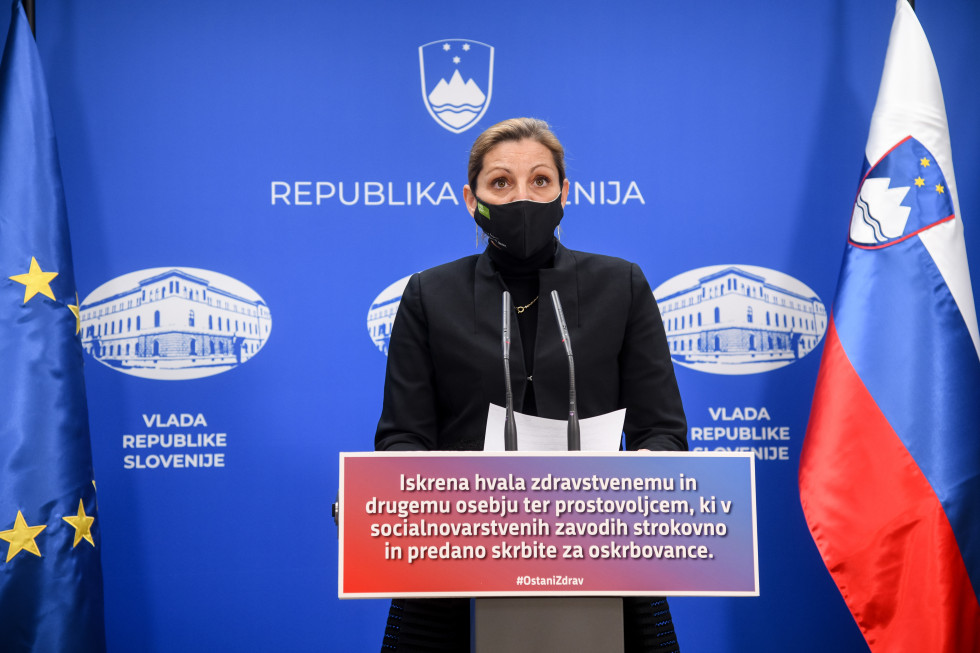Tougher measures to improve the epidemiological situation
The incidence factor (R) is currently at 0.93. According to the government spokesman, this shows that the epidemic continues to slow down, but the pace is too low. The epidemiological situation remains serious as the number of people requiring hospital care is still high. This is one of the reasons, Kacin added, why the government had to take new, additional measures last week, including temporary suspension of public passenger transport for 14 days and closing numerous non-essential economic activities.
The above mentioned measures were presented in more detail at the press conference by Ajda Cuderman, State Secretary at the Ministry of Economic Development and Technology. She clarified, in particular, the (non-)essential economic activities and technical goods (goods for which consumers can claim a guarantee) ,and explained the ambiguities regarding the consumption of takeaway food and beverages in outdoor public places. She stressed that the main goal of the measures taken was to limit contact between people, as this was still the most effective way to curb the spread of the virus.
Another guest at today's press conference was Erik Sedevčič, Head of the Emergency Department of General Hospital Dr Franc Derganc Nova Gorica who, based on the experience at the hospital, explained why the Primorska region, despite its proximity to Italy (as one of the most affected countries in Europe), has successfully controlled the spread of the virus throughout the epidemic. He pointed out the area’s quick response, learning from good practices in neighbouring Italy and close cooperation between various local institutions. Moreover, he said that the hospital was the first to accept asymptomatic infected residents from elderly care homes from different parts of Slovenia, thus enabling such institutions to reorganise and the preparation of red and grey areas as a basis for curbing the spread of infections in elderly care homes. The government spokesman also stressed that until the end of October all regular activities had been carried out at the hospital, and that they would also strive for high quality and timely care of all their patients in the future.
The government spokesman also noted at the press conference that the economic and social lockdown has seriously affected our everyday lives, resulting in a constant increase in physiological distress. A large part of the population is additionally burdened due to the extension of distance learning and the decision to suspend public transport for two weeks. But until an effective vaccine is available, the restriction of contacts between people (and strict observation of all other self-protection measures and measures adopted by the Government based on the proposals of health professionals) is the only effective way to limit the spread of infections, according to epidemiologists and other experts.


